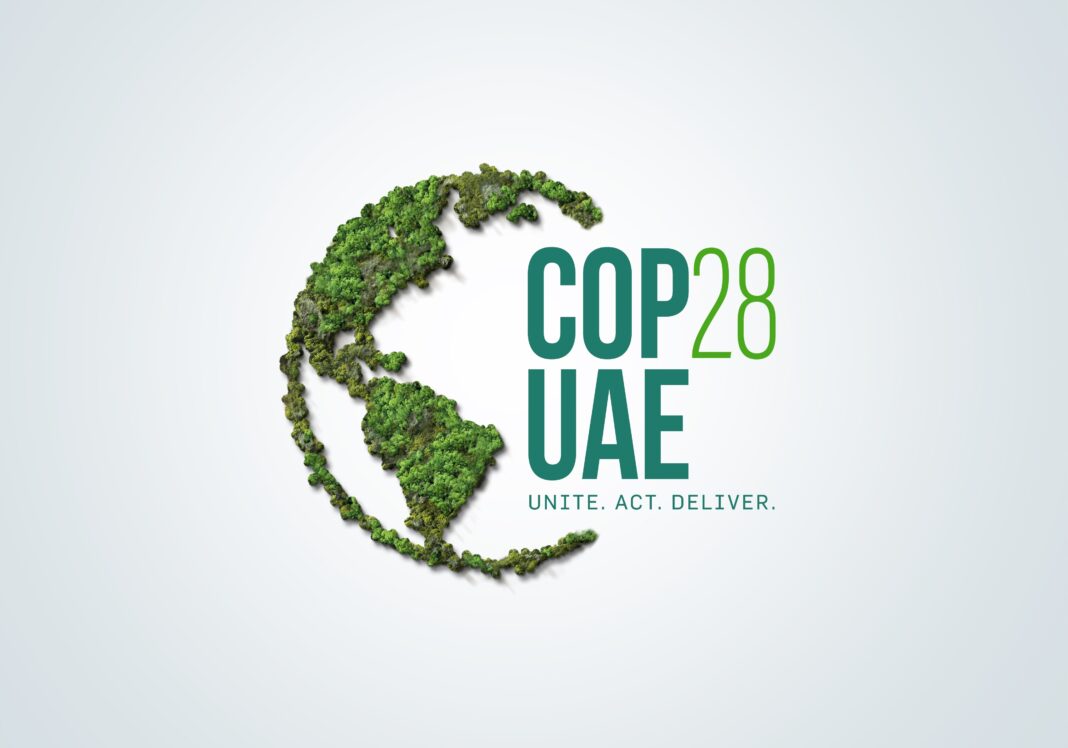DUBAI—COP28 is taking place at Expo City Dubai, United Arab Emirates (UAE) and is expected to convene over 70,000 participants, including heads of state, government officials, international industry leaders, private sector representatives, academics, experts, youth and non-state actors. As mandated by the Paris Climate Agreement, COP28 UAE is delivering the first ever Global Stocktake—a comprehensive evaluation of progress against climate goals. The UAE is leading a process for all parties to agree upon a clear roadmap to accelerate progress through a pragmatic global energy transition and a “leave no one behind” approach to inclusive climate action.
The UAE Declaration on a Global Climate Finance Framework has seen over 10 parties launch a roadmap for making climate finance available, accessible and affordable. This declaration builds on a series of initiatives that have set the path for climate finance reform this year, pulling together a regionally representative group of leaders around one vision. The UAE will work with champions to report back against the delivery of this framework immediately following COP28.
The Conference of the Parties (COP) is the main decision-making body of the United Nations Framework Convention on Climate Change (UNFCCC). It brings together the 198 parties—197 nations plus the European Union—signed on to the Framework Convention.
The inaugural COP gathering took place in Berlin, Germany in March 1995 and today the COP secretariat is headquartered in Bonn. COPs are hosted annually in different countries under the auspices of the UNFCCC, with the UAE hosting COP28.
The ongoing COP28 conference in Dubai has been a pivotal stage for international efforts to combat climate change, with over 70,000 global leaders, policymakers, industry experts, and activists gathering to shape a comprehensive response to the world’s climate crisis.
Under the leadership of Dr. Sultan Al Jaber, COP28 president, the UAE has taken bold strides in crafting a forward-thinking approach to climate action and financing. Mandated by the Paris Climate Agreement, COP28 has steered the first-ever Global Stocktake, evaluating progress against climate goals. Notably, the UAE has championed a clear roadmap to accelerate progress through a global energy transition while prioritizing an inclusive approach that leaves no one behind.
Central to this year’s discussions has been the UAE Declaration on a Global Climate Finance Framework, drawing participation from over 10 nations. This pivotal declaration endeavors to make climate finance more available, accessible, and affordable, building on regional initiatives and uniting global leaders around a singular vision.
President Al Jaber, in a speech at the World Climate Action Summit, introduced the COP28 UAE Declaration, emphasizing its role in keeping the 1.5°C goal within reach while meeting the objectives of the Paris Agreement. He stressed the urgent need to bridge the climate finance gap, framing the Declaration as a comprehensive framework aimed at reframing investments as economic opportunities and significantly scaling up climate finance.
Major Milestones Achieved
COP28 marked a historic milestone by operationalizing a fund focused on addressing ‘loss and damage’ due to the impacts of climate change. This achievement, recognized as the culmination of years of effort, signals an unprecedented unity among nations. Notably, the UAE committed $100 million to this fund, joined by significant pledges from Germany, the UK, Japan and the US.
Moreover, the conference witnessed the establishment of ALTÉRRA, a private climate vehicle with a commitment of $30 billion, aiming to mobilize $250 billion of private-sector investment by 2030. Additionally, the UAE pledged $200 million of Special Drawing Rights to the IMF Resilience and Sustainability Trust, reinforcing support for climate resilience in developing nations.
Nature-centric commitments for climate action
COP28 also highlighted a series of commitments focusing on nature-climate action partnerships. Noteworthy contributions include the UAE’s $30 million investment in Ghana’s ‘Resilient Ghana’ plan. Collaborative efforts from various nations, philanthropists, and institutions announced substantial commitments to conserving biodiversity and leveraging nature-based solutions for climate resilience.
Embracing indigenous knowledge and leadership
Recognizing the critical role of Indigenous communities in conservation, COP28 emphasized the essential contribution of these communities in protecting biodiversity. Indigenous Peoples, representing five percent of the global population, safeguard 80 percent of the world’s remaining biodiversity. Their knowledge and development will form a crucial focus in the partnership between the UAE and Brazil, bridging COP28 to COP30. The conference sets the stage for COP28’s Nature, Land Use and Ocean Day, poised to spotlight nature’s pivotal role as a tool for effective climate action.
Over 40 Ministers unveil ambitious plans for climate action in cities at COP28
In a landmark gathering during the COP28 Multilevel Action, Urbanization, Built Environment, and Transport Day in Dubai, more than 40 ministers collaborated on groundbreaking initiatives to drive climate action within urban landscapes. Partnering with the United Nations Human Settlements Programme (UN-Habitat) and the UN Climate Change High-Level Champion for COP28, these announcements signify a significant stride towards sustainable and resilient urban development.
The announcements, emerging from discussions that spanned multiple sectors, including buildings, waste management, transport, water, and nature, showcased a collective commitment to fostering healthier, more sustainable, and equitable human settlements.
Key highlights from the event include the introduction of several breakthrough initiatives.
Buildings Breakthrough
Led by France and Morocco and supported by 27 countries, the Buildings Breakthrough aims to make ‘near-zero and resilient buildings’ the norm by 2030. Addressing the staggering impact of the building sector, accounting for nearly 40% of global energy-related CO2 emissions, this initiative sets a precedent for transformative change within the construction industry.
Cement and Concrete Breakthrough was launched by Canada and the UAE, with endorsement from countries including the United Kingdom, Ireland, Japan, and Germany; this initiative seeks to establish clean cement as the preferred choice in global markets. The goal is to achieve near-zero emission cement production worldwide by 2030, significantly reducing carbon footprints.
Waste to Zero initiative
A coalition comprising governments at various levels, NGOs, and the private sector, the Waste to Zero initiative aims to decarbonize the waste management sector, transforming waste into valuable resources. Spearheaded by the UAE Ministry of Climate Change and Environment (MOCCAE) and other partners, this initiative aligns with the UAE’s ‘Year of Sustainability.’
The Waste MAP, a pioneering global platform utilizing satellite monitoring to track and measure methane emissions from waste, is set to launch in 20 global megacities, aiding in identifying and mitigating emissions to prevent environmental hazards.
Additionally, new programs have been introduced to accelerate the adoption of 15-minute city policies, promoting highly livable and people-centric urban spaces. The Generation Restoration project, aligned with the Paris Agreement and the Global Biodiversity Framework, supports pilot projects in various world cities to catalyze urban ecosystem restoration and emissions mitigation.
Commitments to fossil fuel-free land transport, nature-positive infrastructure development, and partnerships for greening construction through sustainable wood further underline the comprehensive nature of initiatives introduced at COP28.
These initiatives, commitments, and collaborations underscore the collective resolve of global leaders to prioritize sustainable urban development, mitigate climate risks, and foster resilient cities. The partnerships forged during COP28 are poised to redefine urban landscapes, driving impactful change toward a more sustainable future.
Youth Stocktake
On December 8th, the spotlight turned to the youth as the inaugural Youth Stocktake unfolded, marking an unprecedented convergence of thousands of young individuals worldwide rallying for climate action. Underlining the significance of youth engagement in shaping the climate narrative, COP28 President Dr. Sultan Al Jaber emphasized, “This COP signifies a turnaround, placing inclusivity at the core of climate initiatives to secure a better tomorrow for our youth.”
Dedicated to youth, children, skills, and education, the event culminated with a historic ceremony honouring pioneering Youth Climate Delegates Program participants. The day highlighted the need for substantive youth involvement in policy-making, as a staggering one billion children are exposed to extreme climate risks,
At the heart of discussions were proposals for COP28 policies and formulating a 2023 Global Youth Statement. The Youth Climate Dialogue and Youth Stocktake Launch event, attended by stakeholders and key leaders, marked a pivotal moment in evaluating youth inclusion in UNFCCC and defining strategies for amplified participation.
Led by YOUNGO and supported by Her Excellency Shamma Al Mazrui, the Youth Stocktake presented a comprehensive analysis of youth engagement within UNFCCC, showcasing best practices and pathways for increased involvement in decision-making.
Reflecting on these initiatives, Her Excellency Shamma Al Mazrui stated, “COP28 has witnessed unprecedented youth-driven endeavours. Today signifies a pivotal shift towards lasting transformative change, a legacy for future COPs.”
Moreover, COP28 prioritized global climate education, with 38 countries pledging to integrate climate education into their national commitments. Events focused on future skills and careers, including the Marketplace of the Future and the Green Skills Fair, aimed to empower young leaders and connect them with opportunities in the climate sector.
The Youth Climate Delegates Program, featuring 110 delegates worldwide, celebrated its participants, focusing on inclusivity from Least Developed Countries, Small Island Developing States, Indigenous Peoples, and other minority groups. This program, supported with total funding for participation, sets a new standard for youth engagement within COP sessions.
Additionally, the UAE announced a $220 million funding package for Africa during the event, emphasizing the country’s commitment to youth-focused initiatives.
Land Use and Ocean Day
During COP28’s Nature, Land Use, and Ocean Day, on December 10, leaders embraced commitments exceeding $186 million to propel climate action and sustain the drive to safeguard and revive nature. Key commitments spanning forests, mangroves, landscape restoration, nature finance, and ocean initiatives were declared, affirming the critical need for immediate nature-focused measures to meet the Paris Agreement’s objectives.
H.E Razan Al Mubarak, the UN Climate Change High-Level Champion for COP28, stressed, “Protecting and restoring nature, land, and the ocean is integral to realizing the Paris Agreement’s goals of maintaining the 1.5°C target. Collaboration, especially with indigenous peoples and local communities, stewards of these vital resources, is imperative.”
New funding of over $186 million for nature and climate initiatives focusing on forests, mangroves, and the ocean was unveiled during the Nature, Land Use and Ocean Day. This financial support supplements the $2.5 billion previously mobilized during COP28’s World Climate Action Summit on December 2.
H.E Nana Addo Dankwa Akufo-Addo, President of Ghana, emphasized “Realizing the 1.5°C goal necessitates immediate action on nature, as demonstrated by the substantive commitments showcased by the COP28 Presidency, the UAE.”
The preservation and revival of nature hold immense potential, contributing up to 30 percent of the necessary mitigation action to achieve the 1.5°C target by 2030. Moreover, nature conservation plays a pivotal role in mitigating climate-related risks like floods and fires, while also fostering economic opportunities, potentially generating a USD $10 trillion market and creating nearly 400 million new jobs.
Key milestones set during COP26 to halt and reverse deforestation by 2030 and the adoption of the Global Biodiversity Framework earlier this year aim to protect 30 percent of the land and ocean by 2030. Achieving these objectives hinges on investing in and partnering with Indigenous communities, custodians of about 80 percent of global biodiversity. María Jose Andrade Cerda, an Indigenous leader from Ecuador, emphasized the importance of harmonizing science and Indigenous wisdom, underscoring COP28’s reminder of the inseparable link between humanity and nature.
A significant policy outcome of Nature, Land Use and Ocean Day is the joint statement between the COP28 Presidency and the Convention on Biological Diversity, endorsed by 18 countries, outlining a commitment to synchronize and execute nature and climate strategies concurrently.
Building upon commitments made during the World Climate Action Summit, recent announcements include collaborations like the Mangrove Alliance for Climate and endorsements for initiatives like the Mangrove Breakthrough and the High-Level Ocean Panel for a Sustainable Ocean Economy. These efforts aim to drive extensive restoration and protection initiatives worldwide.
Outlook for the Future
COP28, drawing to a close, leaves a legacy of comprehensive financial frameworks, robust climate action initiatives and a renewed commitment to preserving nature’s invaluable role in combating climate change. As the world looks ahead, these commitments and milestones established at COP28 are poised to shape global climate agendas for years to come, laying a foundation for sustainable and resilient futures across the planet.






